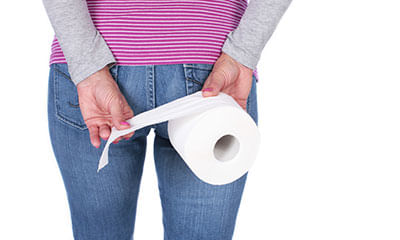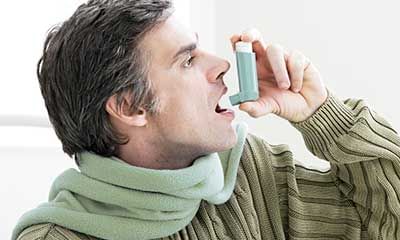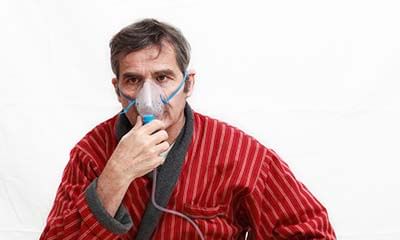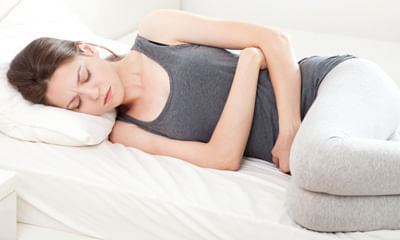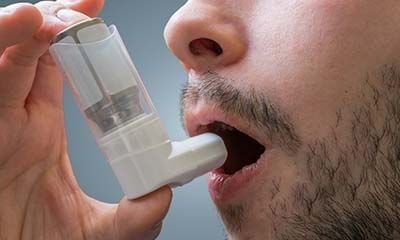Heavy Breathing During Pregnancy
I have piles. When I take heavy breathing exercises like kapalbhati or bhastrika I start bleeding. Is it because of pile ...
Ask Free Question
Most people use the term piles if they see any bold in motion, which may be just mild from minor injury in the excretion pathway resulting from constipation, or fistula or gastroenteritis and see in the blood is not piles, in all cases. Piles are hemorrhoids that become inflamed. Hemorrhoids are masses, clumps, cushions of tissue in the anal canal - they are full of blood vessels, support tissue, muscle, and elastic fibers. Piles can be of various sizes and may be internal (inside the anus) or external ones (outside the anus). Typically, internal piles occur from 2 to 4 cm above the opening of the anus. External piles (perianal hematoma) occur on the outside edge of the anus. The internal ones are much more common. Symptomatic hemorrhoids affect at least half the population at some time in their lives before the age of 50. In the majority of cases, piles are effectively treated with over-the-counter medications, a good fluid intake, and by following a diet high in fiber. In severe cases, the piles may have to be surgically removed. About 10% of patients who go and see their doctor about piles eventually require surgical intervention. Internal hemorrhoids are classified into four grades. grade 1 - there are small inflammations, usually inside the lining of the anus. They are not visible grade 2 - larger than grade 1 hemorrhoids, but also inside the anus. When passing a stool, they may get pushed out, but return unaided grade 3 - often called 'prolapsed hemorrhoids'; these appear outside the anus. The patient may feel them hanging out. They can be pushed back in if the patient presses with their finger grade 4 - these cannot be pushed back in and need to be treated by a doctor. They are large and stay outside the anus all the time. External hemorrhoids are called perianal hematoma. These are small lumps that are located on the outside edge of the anus. They are very itchy and can be painful if a blood clot forms inside (thrombosed external hemorrhoid). Thrombosed external hemorrhoid requires medical treatment straight away piles occur when the blood vessels around the anus and in the rectum will stretch under pressure and may swell or bulge. Inflamed veins (hemorrhoids) can develop when pressure increases in the lower rectum. This may be due to: chronic constipation chronic diarrhea lifting heavyweights. pregnancy straining when passing a stool the tendency to develop hemorrhoids may also be inherited. The risks of developing piles grow with age the treatment for piles in the majority of cases, piles resolve on their own without the need for any treatment. Treatments can help significantly reduce the discomfort and itching that many patients experience. Diet - piles can be caused by too much straining when doing bowel movements, which is the result of constipation. A change in diet can help keep the stools regular and soft. This involves eating more fiber, such as fruit and vegetables, or switching your cereal breakfast to bran. Water is the best drink, and the patient may be advised to increase his/her water consumption. Some experts say too much caffeine is not good. Simple things you can do yourself to help prevent piles: 10 try not to strain when you go to the toilet avoid laxatives exercise. Ointments, creams, pads and other otc medications - there are some over-the-counter (otc) medications that help soothe the redness and swelling around the anus area. Some of them contain witch hazel, hydrocortisone, or some other active ingredient which can relieve symptoms of itching and pain surgery - used for particularly large piles, or grades 3 or 4 hemorrhoids. Generally, surgery is used if other procedures were not effective. Sometimes surgery is done on an outpatient basis - the patient goes home after the procedure.
I have consumed unwanted 72 every time after having sex in 6 month or 1 years gap? Is there is any side effect in longte ...
Ask Free Question
Hello- This tablet could cause multiple side effects on a woman's body. Some of the most commonly occurred side effects of this pill are: Difficulty in breathing. Swelling of face, lips, eyelids, tongue, hands and feet. Severe abdominal pain. Heavy menstrual bleeding. Spotting or bleeding between periods. Nausea and Vomiting. Unusual tiredness and weakness. Dizziness. If taken once, it will not affect your pregnancy expectations.
My wife having 2.5 months pregnancy. But she is facing whole day nausea. Not taking any food, if trying then immediately ...
Ask Free Question
Its very normal. Do not worry. Its a matter of few more days only. Follow this 1. Don't take tea empty stomach. Eat something like a banana (if you are not diabetic) or any seasonal fruit or soaked almonds and a glass of water first thing in the morning (within 10 mins of waking up). No only biscuits or rusk will not do. 2. Don't overeat 3. Take your breakfast every day. Don't skip it. U should eat whatever your mother or grandparent eat in bfast. I mean to say whatever is your traditional food. If punjabi eat paratha, if belongs to south then take idli/ dosa etc. 4. Have light meals every 2 hours (in addition to your breakfast, lunch n dinner) e.g. Nariyal paani, chaach, a handful of dry fruits, a handful of peanuts, any fresh n seasonal fruit (eat whole fruit not juice), a cup of curd/milk etc 5. Take simple food like rice n dal in dinner. Finish your dinner at least 2 hours before going to sleep. 6. Maintain active life style7. Avoid fast foods, spicy n fried foods, carbonated beverages 8. Take a lot of green vegetables n fruit. 9. Drink lot of water.10. Everyday preferably sleep on same time exercise in the form of yoga, cycling, swimming, gym etc.For more details, you can consult me.
I have asthma problem since childhood so many time I am going in dangerous zone. I have lots of medicine but yet not goo ...
Ask Free Question
Asthma has become a common ailment these days because of rampant air pollution and stressful lifestyle. The quality of the air we breathe, the change in climate and dust allergy can easily bring in an asthmatic flare up in some people. An asthma attack causes breathing difficulty. This happens as your bronchial tubes get inflamed and contract, thereby narrowing down the air passages. You feel your chest tightening up and experience shortness of breath with a wheezing sound. What triggers asthma flare-ups? There a number of potential triggers for mild to severe asthmatic attacks. By identifying and avoiding these triggering factors you can bring down the frequency of your asthmatic flare-ups notably. Look out for the following factors that may set off asthma: 1.Cold and flu: cold and flu infection spreads through coughing and sneezing from an infected person. A cold takes 2-4 days while flu takes 3-4 weeks to recover. These infections can potentially trigger the asthma attack by causing inflammation of the air passages. 2.Weather change: the changing weather conditions, cold air, humid climate and thunderstorms often trigger asthma flare-ups. Changes in temperature also aggravate asthma problem. Cold air is one of the most common reasons for asthma attacks in kids and adults alike. 3.Allergens: dust mites: dust mites in your carpets, rugs, pillows and bedding may trigger asthma as well. It is very difficult to kill dust mites. Make sure you use the vacuum cleaner to clear away dust from your beddings, carpets, pillows etc. And put them out in the sun often. Moulds: if you have indoor plants then they may trigger an asthma attack due to allergy flare-ups. This happens as they tend to form moulds that may trigger asthma. Pollens: indoor plants and garden areas may be a good thriving ground for pollens. Pollens are very fine particles. Insects and gusts of air may transport these allergens to your body through breath. Pet/animal dander and cockroaches: pets or animals with hair or furs like a dog, cat, bird or even mice may shed minuscule skin flecks that may cause irritation and trigger an asthmatic flare up. If you have cockroaches at home, then get pest control done. Their droppings may also trigger asthma flare up and you would have never guessed the real reason! 4.Work environment: if your office area is closed up and not well ventilated, has wood dust or smell of wood polish, wall paint fumes, chemicals etc. Then your asthma flare-up can set off easily. 5.Cigarette smoke: if you smoke or you are in a smoking zone like in a restaurant or a party, then the smoke can prompt an asthma flare-up. Even smoke from a bushfire may trigger it. 6. Air pollution: if you live, work or travel in an area where air pollution is high due to traffic or lack of greenery, then an asthma flare-up can occur frequently. 7.Strong smells: strong smells from flowers, mosquito repellents, incense sticks, varnish, paint, perfumed candles, deodorants or body perfumes can also trigger asthma. 8.Medication: certain medicines can also trigger asthma attack like blood pressure or steroidal medicines etc. Always ask your doctor before taking medicines. 9.Stress and emotional highs: if you have not taken a vacation in a long time, you are working late nights or have to do heavy physical or mental work, then it results in extreme stress. It may trigger an asthmatic flare up. Emotional highs like anger or excitement can also trigger a flare-up of asthma. 10.Exercise: exercising, jogging, swimming or running can also trigger asthmatic attack due to physical exertion. This happens because when you run or work out, then breathing becomes faster. This lets a lot of cold air enter your lungs in comparison to normal breath that is made warm by your nose. 11.Hormonal imbalance: anytime you are experiencing hormonal ups and downs, asthma flare-up can get triggered. For women menstrual cycle, pregnancy or menopause can trigger asthma in some cases. This is not very common though. 11.Foods: kapha aggravating foods can also trigger an asthmatic attack. Avoid rice, curd, high salt, sugar, lentils, strong tea, alcohol, pickles, sauces, processed foods to lower the risk of an asthma flare-up. Processed foods contain preservatives like sulphite foods that may trigger asthma. Find out the reasons that cause your asthma to flare up. Keep yourself active despite asthma by avoiding these triggering factors.
Doc, meri future hone wali wife se Shaadi hone wali hai aur unko asthma problem hai tho kya unhe aagr jakar kuch problem ...
Ask Free Question
Asthma has become a common ailment these days because of rampant air pollution and stressful lifestyle. The quality of the air we breathe, the change in climate and dust allergy can easily bring in an asthmatic flare up in some people. Asthma attack causes breathing difficulty. This happens as your bronchial tubes get inflamed and contract, thereby narrowing down the air passages. You feel your chest tightening up and experience shortness of breath with a wheezing sound. What triggers asthma flare ups? There a number of potential triggers for mild to severe asthmatic attacks. By identifying and avoiding these triggering factors you can bring down the frequency of your asthmatic flare ups notably. Look out for the following factors that may set off asthma: 1.Cold and flu: cold and flu infection spreads through coughing and sneezing from an infected person. A cold takes 2-4 days while flu takes 3-4 weeks to recover. These infections can potentially trigger the asthma attack by causing inflammation of the air passages. 2.Weather change: the changing weather conditions, cold air, humid climate and thunderstorms often trigger asthma flare ups. Changes in temperature also aggravates asthma problem. Cold air is one of the most common reasons for asthma attacks in kids and adults alike. 3.Allergens: dust mites: dust mites in your carpets, rugs, pillows and bedding may trigger asthma as well. It is very difficult to kill dust mites. Make sure you use vacuum cleaner to clear away dust from your beddings, carpets, pillows etc. And put them out in the sun often. Molds: if you have indoor plants then they may trigger asthma attack due to allergy flare ups. This happens as they tend to form molds that may trigger asthma. Pollens: indoor plants and garden areas may be a good thriving ground for pollens. Pollens are very fine particles. Insects and gusts of air may transport these allergens to your body through breath. Pet/animal dander and cockroaches: pets or animals with hair or fur like a dog, cat, bird or even mice may shed miniscule skin flecks that may cause irritation and trigger an asthmatic flare up. If you have cockroaches at home, then get pest control done. Their droppings may also trigger asthma flare up and you would have never guessed the real reason! 4.Work environment: if your office area is closed up and not well ventilated, has wood dust or smell of wood polish, wall paint fumes, chemicals etc. Then your asthma flare up can set off easily. 5.Cigarette smoke: if you smoke or you are in a smoking zone like in a restaurant or a party, then the smoke can prompt an asthma flare up. Even smoke from a bushfire may trigger it. 6. Air pollution: if you live, work or travel in an area where air pollution is high due to traffic or lack of greenery, then an asthma flare up can occur frequently. 7.Strong smells: strong smells from flowers, mosquito repellents, incense sticks, varnish, paint, perfumed candles, deodorants or body perfumes can also trigger asthma. 8.Medication: certain medicines can also trigger asthma attack like blood pressure or steroidal medicines etc. Always ask your doctor before taking medicines. 9.Stress and emotional highs: if you have not taken a vacation in a long time, you are working late nights or have to do heavy physical or mental work, then it results in extreme stress. It may trigger an asthmatic flare up. Emotional highs like anger or excitement can also trigger a flare up of asthma. 10.Exercise: exercising, jogging, swimming or running can also trigger asthmatic attack due to physical exertion. This happens because when you run or work out, then breathing becomes faster. This lets a lot of cold air enter your lungs in comparison to normal breath that is made warm by your nose.
I had my periods on 18th march 2019, we had protected sex on second day of my period after that I got only 2 days bleedi ...
Ask Free Question
With protection protected sex it may not be pregnancy. But some other reason like pcod or hormonal imbalance.
I am having asthma. Last 15 year no improvement my asthma. Many many doctor consult but no solution. How to relieve my a ...
Ask Free Question
The bronchial asthma is the narrowing of airways and is due to allergy, infectons, and emotions. You need brob\nchodilaotors and good lifestyle avoiding the trigger factors asthma has become a common ailment these days because of rampant air pollution and stressful lifestyle. The quality of the air we breathe, the change in climate and dust allergy can easily bring in an asthmatic flare up in some people. Asthma attack causes breathing difficulty. This happens as your bronchial tubes get inflamed and contract, thereby narrowing down the air passages. You feel your chest tightening up and experience shortness of breath with a wheezing sound. What triggers asthma flare ups? There a number of potential triggers for mild to severe asthmatic attacks. By identifying and avoiding these triggering factors you can bring down the frequency of your asthmatic flare ups notably. Look out for the following factors that may set off asthma: 1.Cold and flu: cold and flu infection spreads through coughing and sneezing from an infected person. A cold takes 2-4 days while flu takes 3-4 weeks to recover. These infections can potentially trigger the asthma attack by causing inflammation of the air passages. 2.Weather change: the changing weather conditions, cold air, humid climate and thunderstorms often trigger asthma flare ups. Changes in temperature also aggravates asthma problem. Cold air is one of the most common reasons for asthma attacks in kids and adults alike. 3.Allergens: dust mites: dust mites in your carpets, rugs, pillows and bedding may trigger asthma as well. It is very difficult to kill dust mites. Make sure you use vacuum cleaner to clear away dust from your beddings, carpets, pillows etc. And put them out in the sun often. Molds: if you have indoor plants then they may trigger asthma attack due to allergy flare ups. This happens as they tend to form molds that may trigger asthma. Pollens: indoor plants and garden areas may be a good thriving ground for pollens. Pollens are very fine particles. Insects and gusts of air may transport these allergens to your body through breath. Pet/animal dander and cockroaches: pets or animals with hair or fur like a dog, cat, bird or even mice may shed miniscule skin flecks that may cause irritation and trigger an asthmatic flare up. If you have cockroaches at home, then get pest control done. Their droppings may also trigger asthma flare up and you would have never guessed the real reason! 4.Work environment: if your office area is closed up and not well ventilated, has wood dust or smell of wood polish, wall paint fumes, chemicals etc. Then your asthma flare up can set off easily. 5.Cigarette smoke: if you smoke or you are in a smoking zone like in a restaurant or a party, then the smoke can prompt an asthma flare up. Even smoke from a bushfire may trigger it. 6. Air pollution: if you live, work or travel in an area where air pollution is high due to traffic or lack of greenery, then an asthma flare up can occur frequently. 7.Strong smells: strong smells from flowers, mosquito repellents, incense sticks, varnish, paint, perfumed candles, deodorants or body perfumes can also trigger asthma. 8.Medication: certain medicines can also trigger asthma attack like blood pressure or steroidal medicines etc. Always ask your doctor before taking medicines. 9.Stress and emotional highs: if you have not taken a vacation in a long time, you are working late nights or have to do heavy physical or mental work, then it results in extreme stress. It may trigger an asthmatic flare up. Emotional highs like anger or excitement can also trigger a flare up of asthma. 10.Exercise: exercising, jogging, swimming or running can also trigger asthmatic attack due to physical exertion. This happens because when you run or work out, then breathing becomes faster. This lets a lot of cold air enter your lungs in comparison to normal breath that is made warm by your nose. 11.Hormonal imbalance: anytime you are experiencing hormonal ups and downs, asthma flare up can get triggered. For women menstrual cycle, pregnancy or menopause can trigger asthma in some cases. This is not very common though. 11.Foods: kapha aggravating foods can also trigger an asthmatic attack. Avoid rice, curd, high salt, sugar, lentils, strong tea, alcohol, pickles, sauces, processed foods to lower the risk of asthma flare up. Processed foods contain preservatives like sulphite foods that may trigger asthma. Find out the reasons that cause your asthma flare up. Keep yourself active despite asthma by avoiding these triggering factors.
Hi. For about a month or two. I've been worried if I am pregnant because I read a lot of theories online about how vagin ...
Ask Free Question
Anal sex doesn't cause pregnancy. Ever. Neither oral sex or other types. Vaginal sex is the only way. And other than that IVF and IUI.
My friend had sex without protection yesterday night and next day morning she had taken unwanted i-pill if it's problem? ...
Ask Free Question
There is no fixed time in which one bleeds after taking ipill. Sometimes unexpected bleeding occurs more over it is not necessary. Next menstrual cycle can be early or delayed as side effects of the pill. Taken within 24 hrs it is 95% effective.
Hi, I need some help and clarify my question, i am a heat body, so any problem for during pregnancy forming time. ...
Ask Free Question
Other effects of increased blood flow. This extra blood flow boosts body metabolism by about 20%, creating more body heat and making pregnant women less likely to feel the cold. A pregnant woman's core body temperature will often rise to about 37.8°C, when it is normally 37°C

